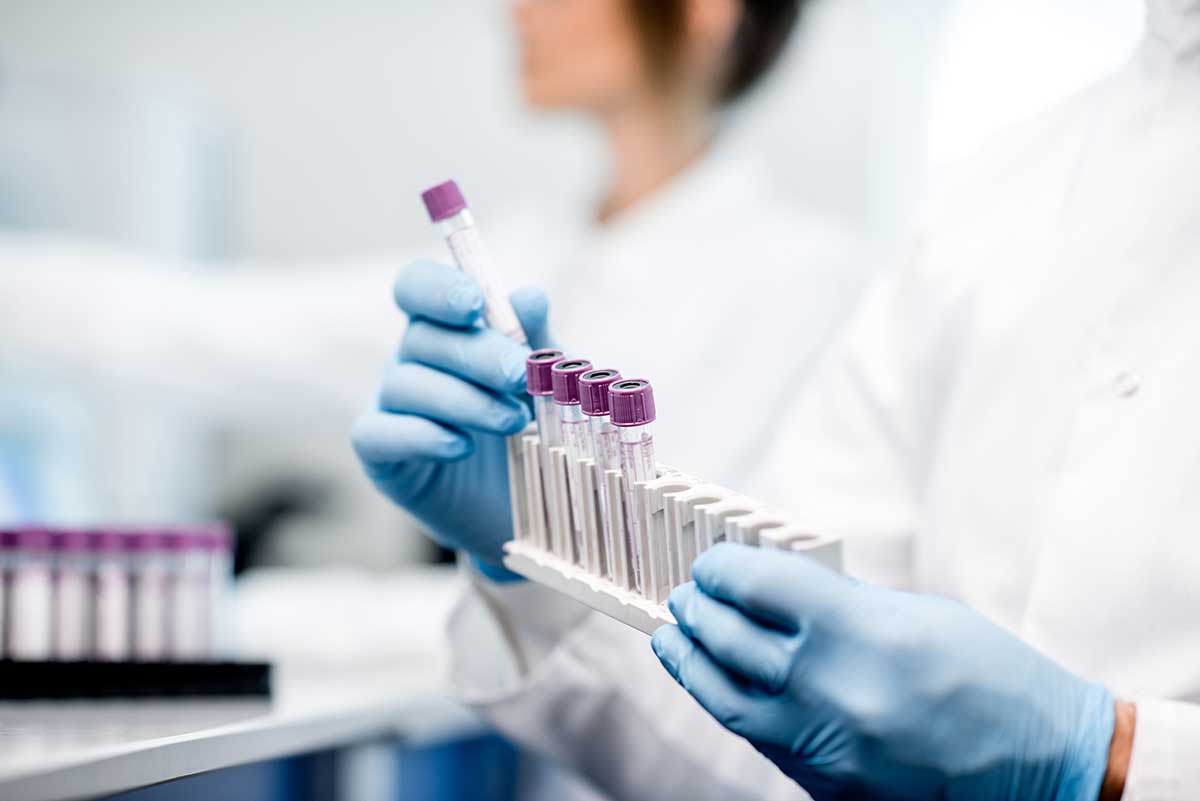- Patients Patients
Reproductive Genetics Testing
Patient Resources
Cost & Billing
- Providers Providers
- Genetic Counseling
- Login Login
- Estimate My Cost

We offer both screening and diagnostic tests. Learn the difference and why it matters
Screening and Diagnostic Tests: Know the Difference
Since the beginning of the COVID-19 pandemic, the world has become increasingly aware of the importance of testing in healthcare. However, it is important to know the difference between diagnostic testing and screening. Both are important to healthcare management, but screening and diagnostic tests have different purposes and may need to be used together to create an overall picture of your health.

What’s the difference between screening and diagnostic testing?
Put simply, screening tests are designed to identify whether you are at increased risk to be affected by the condition being screened. Diagnostic tests are designed to provide a definitive “yes” or “no” diagnosis for the condition being tested.
Screening tests (Pap, mammogram, Fecal immunochemical test (FIT)) are usually less invasive and have little to no risk of complications.
Diagnostic tests (biopsy) can be more invasive and have a small risk of complications.
Used together, they help confirm or rule out the condition being tested.
| Type of Test | Possible Results | Provides a Diagnosis? |
|---|---|---|
Screening test (e.g. mammogram, cholesterol measurements, Pap smear, colonoscopy, fecal blood test, NIPS (NIPT), carrier screening or hereditary cancer screening) | Increased risk, decreased risk, screen positive, screen negative, higher or lower chance than baseline/initial risk | No. You may require follow-up testing based on your doctor’s recommendation, which may include specialty referral and diagnostic confirmation |
| Diagnostic test (e.g., tissue biopsy, amniocentesis) | Positive: Person or pregnancy is affected Negative: Person or pregnancy is unaffected | Yes. Diagnostic testing provides confirmation of the condition. You should receive follow-up consultation to review results and get support for appropriate medical management |
What do my screening test results mean?
A positive result on a screening test indicates you have an increased risk for the condition and is NOT a definitive diagnosis. Your physician or healthcare provider will likely order a diagnostic test to confirm the result.
A negative screening result does not guarantee you are unaffected by the condition being screened. It is important that any result is evaluated within the context of your clinical and medical history.
Understanding screening and diagnostic test performance
Screening test performance is measured using four clear attributes: sensitivity, specificity, positive predictive value (PPV) and negative predictive value (NPV).
Sensitivity
Also known as detection rate, this is the screening test’s ability to report a positive result when run on a known affected individual. A negative result in an affected individual is referred to as a false negative.
Specificity
This is the screening test’s ability to report a negative result when run on a known unaffected individual. A positive result in an unaffected individual is referred to as a false positive.
Positive Predictive Value (PPV)
This measures the likelihood that a positive screen result has detected a truly affected individual.
Negative Predictive Value (NPV)
This measures the likelihood that a negative screen result has detected a truly unaffected individual.

No screening test is 100% definitive
Screening tests, by definition, can result in false positives and false negatives. The most sensitive tests will have a low number of false negatives, and the most specific ones will have a low number of false positives.
Your healthcare provider can help answer your questions about screening test results and help you decide next steps.
We are a trusted resource of screening and diagnostic testing
Screening tests get the conversation started. Combined with confirmatory diagnostic tests, they can help you understand what is going on with your health. It is worth noting that screening recommendations differ by age and sex assigned at birth, so download our checklist that outlines the types of screenings you need.
If you use one of our many screening options—several of which you can shop for directly on Labcorp OnDemand—make sure you share your results with your doctor or primary healthcare provider so they can best determine the right path forward for you and your overall health.


